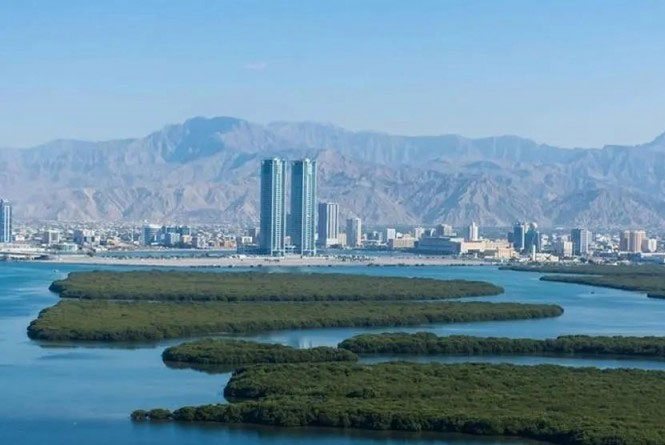Starting a business in a free zone can be a strategic move for entrepreneurs looking to expand their operations in the Middle East. Among the various options available, Sharjah Airport Free Zone (SAFZ) stands out as a premier destination for company registration. This article delves into the essential aspects of Sharjah Airport Free Zone company registration, providing a comprehensive overview for investors and business owners. By covering critical areas such as benefits, processes, legal requirements, and post-registration support, we aim to equip you with the knowledge needed to make an informed decision. Whether you're a startup or an established enterprise, understanding the intricacies of Sharjah Airport Free Zone company registration can streamline your entry into this dynamic market. Let's explore the key facets that make this free zone an attractive hub for business growth.

Sharjah Airport Free Zone (SAFZ) was established in 1995 and has since grown into one of the most prominent free zones in the United Arab Emirates (UAE). Strategically located adjacent to the Sharjah International Airport, it offers seamless connectivity to global markets, making it an ideal choice for logistics, trading, and manufacturing businesses. The free zone is managed by the Sharjah Airport International Free Zone Authority (SAIF Zone), which provides a robust regulatory framework and state-of-the-art infrastructure. Over the years, SAFZ has attracted thousands of companies from diverse sectors, thanks to its business-friendly policies and strategic location. The Sharjah Airport Free Zone company registration process is designed to be efficient and transparent, catering to both local and international investors. By choosing SAFZ, businesses can leverage its proximity to key transportation hubs, including ports and highways, facilitating easy import and export activities. This section highlights the foundational aspects of SAFZ, setting the stage for a deeper dive into the registration process and its advantages.
One of the primary reasons businesses opt for Sharjah Airport Free Zone company registration is the array of benefits it offers. Firstly, companies enjoy 100% foreign ownership, which is a significant advantage for international investors who wish to have full control over their operations without the need for a local partner. Additionally, SAFZ provides complete exemption from corporate and personal income taxes, along with no restrictions on currency transfers. This tax-friendly environment enhances profitability and simplifies financial management. Another key benefit is the streamlined customs procedures, which reduce delays and costs associated with international trade. The free zone also offers modern infrastructure, including office spaces, warehouses, and retail outlets, tailored to various business needs. Moreover, businesses registered in SAFZ benefit from access to a skilled workforce and networking opportunities within a diverse community of enterprises. The Sharjah Airport Free Zone company registration thus opens doors to a supportive ecosystem that fosters growth and innovation. By understanding these advantages, investors can appreciate why SAFZ is a preferred destination for establishing a presence in the UAE.
The Sharjah Airport Free Zone company registration process is straightforward and can be completed in a few key steps. First, prospective investors need to select an appropriate business activity and legal structure, such as a Free Zone Establishment (FZE) or Free Zone Company (FZC). This decision impacts the licensing requirements and operational scope. Next, applicants must submit an online application through the SAIF Zone portal, providing details about the proposed business, shareholders, and initial capital. Once the application is reviewed and approved, the next step involves securing a trade name and obtaining initial approval from the authorities. Following this, investors need to prepare and submit the required documents, which typically include passport copies, business plans, and proof of address. After document verification, the licensing fee and other charges must be paid to proceed. The final steps involve signing the lease agreement for office or warehouse space and receiving the business license. Throughout this process, SAIF Zone offers dedicated support to ensure a smooth experience. By following these steps, businesses can complete their Sharjah Airport Free Zone company registration efficiently, allowing them to commence operations without unnecessary delays.

To successfully complete the Sharjah Airport Free Zone company registration, applicants must meet specific eligibility criteria and submit a set of mandatory documents. Generally, individuals or corporate entities above 18 years of age are eligible to apply, with no restrictions on nationality. However, certain business activities may require additional approvals from relevant governmental bodies. The key documents needed include a completed application form, copies of shareholders' and managers' passports, and a detailed business plan outlining the company's objectives and financial projections. For corporate shareholders, attested copies of the certificate of incorporation and board resolution authorizing the registration are necessary. Additionally, applicants must provide proof of initial capital, which varies based on the business activity and legal structure. It's also essential to have a no-objection certificate (NOC) from the current sponsor if the applicant resides in the UAE. The Sharjah Airport Free Zone company registration process emphasizes transparency, and all documents must be accurate and up-to-date to avoid rejections. By preparing these materials in advance, investors can expedite their application and ensure compliance with SAFZ regulations.
Understanding the financial implications is crucial for any business venture, and the Sharjah Airport Free Zone company registration involves various costs and fees that investors should budget for. The primary expenses include the license fee, which depends on the type of business activity and legal structure chosen. For instance, a trading license might cost differently from an industrial or service license. Additionally, there are fees for trade name reservation, initial approval, and document processing. Companies must also consider the rental costs for office spaces, warehouses, or land within the free zone, which are typically paid annually. Other charges may include visa fees for employees, which are based on the number of visas required, and security deposits for utilities and facilities. It's advisable to consult with SAIF Zone authorities or a business consultant to get a detailed breakdown of all costs associated with Sharjah Airport Free Zone company registration. By planning financially, businesses can avoid unexpected expenses and ensure a smooth setup process. This transparency in pricing is one of the reasons why SAFZ remains a cost-effective option for many entrepreneurs.
After completing the Sharjah Airport Free Zone company registration, businesses can access a range of post-registration support services and facilities designed to enhance operational efficiency. SAFZ offers comprehensive administrative support, including assistance with visa processing, labor contracts, and immigration services. This helps companies quickly onboard international staff and manage their workforce effectively. The free zone also provides state-of-the-art infrastructure, such as high-speed internet, meeting rooms, and conference facilities, which are essential for day-to-day operations. Moreover, SAFZ has dedicated customer service teams to address any queries or issues that may arise after registration. Businesses can benefit from networking events and trade fairs organized within the free zone, fostering collaboration and market exposure. The Sharjah Airport Free Zone company registration thus not only simplifies the initial setup but also ensures long-term success through continuous support. By leveraging these resources, companies can focus on growth and innovation, knowing that they have a reliable partner in SAFZ.
In summary, the Sharjah Airport Free Zone company registration offers a compelling pathway for businesses seeking to establish a presence in the UAE. From its strategic location and tax benefits to a streamlined registration process and robust post-setup support, SAFZ provides an environment conducive to success. By understanding the key aspects covered in this article—introduction to SAFZ, benefits, registration steps, document requirements, costs, and post-registration facilities—investors can navigate the process with confidence. The Sharjah Airport Free Zone company registration is more than just a legal formality; it's a strategic decision that can unlock numerous opportunities for growth and expansion. As you consider your next business move, remember that SAFZ stands ready to support your journey with its world-class infrastructure and business-friendly policies. Embrace the potential of Sharjah Airport Free Zone company registration and take the first step toward a prosperous future in one of the region's most dynamic economic hubs.










Zhuoxin Consulting relies on its Chinese service network and Dubai executive team to provide professional one-stop business services without communication barriers for Chinese companies to enter the Middle East market. Its business covers company establishment and maintenance, accounting and taxation, bank account opening, PRO services and business services.
Zhuoxin Consulting has high-quality business resources and maintains close cooperation with many free zones, bankers and tax departments in the UAE to escort your expansion in the Middle East market.
 Add WeChat
Add WeChat